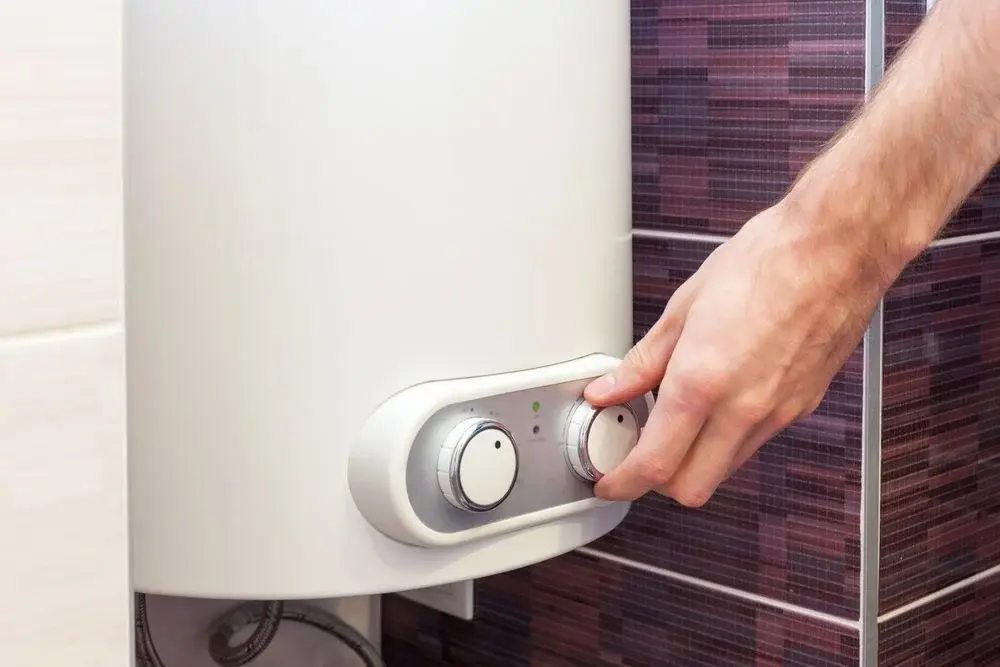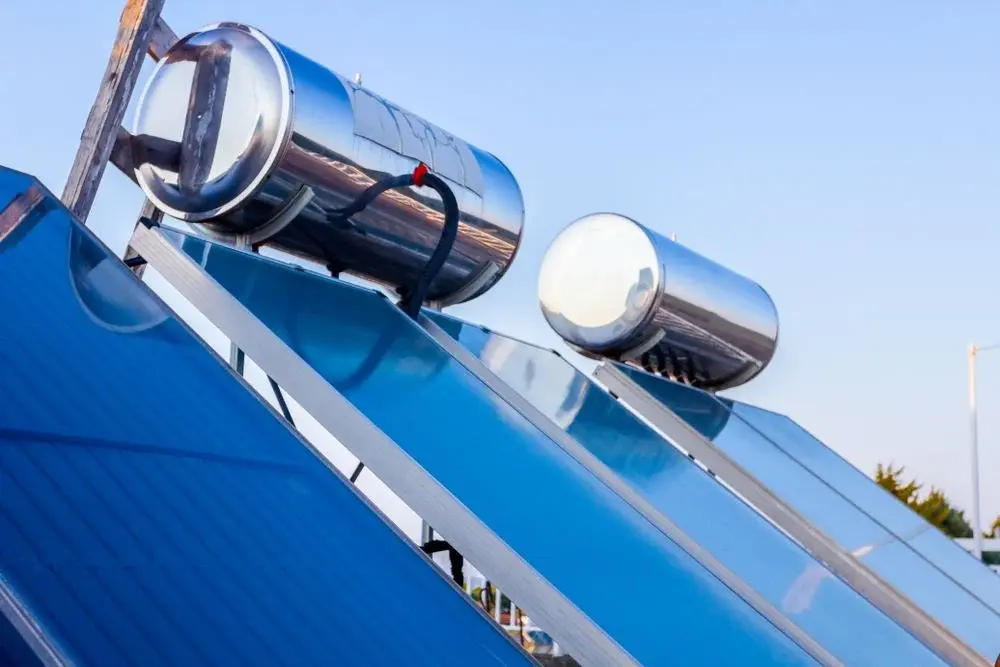Our hot water system design services are cost-effective and reliable, delivering high-quality results.
You can expect hot water to be delivered when you want it at exactly the temperature you want it.
We ensure you reap the benefits of cutting edge technology when we design your hot water system.

The International Plumbing Code (IPC) 2015 requires all structures that are equipped with plumbing fixtures and used for human habitation or occupancy to be provided with potable water in specific amounts and at certain pressures. This code and various local codes specify how the building water distribution system should be designed as well as what materials are acceptable for pipes and so on. At NY Engineers, our MEP engineers have considerable experience in the field and will ensure your hot water system design is tops.
We are one of the fastest growing MEP design firms in the construction industry. We pride ourselves on having a fast turnaround while providing cost effective solutions. We are licensed in 50 states and are your one stop shop for all MEP design needs.
We are licensed in all 50 states!
We design to the perfection
Enjoy our lightening fast turnaround
We have completed so far!
Our designs are approved by DOB in one go
The best service experience in the market
The International Plumbing Code (IPC) 2015 requires all structures that are equipped with plumbing fixtures and used for human habitation or occupancy to be provided with potable water in specific amounts and at certain pressures.
This code and various local codes specify how the building water distribution system should be designed as well as what materials are acceptable for pipes and so on. This includes:
The IPC also requires that hot water should be supplied to residential buildings for bathing, washing, cleansing, laundry, culinary purposes, and building maintenance. In non-residential buildings, hot water or tempered water must be supplied cleansing, laundry, culinary purposes, and building maintenance purposes.
Hot water is defined by the IPC as water at a temperature equal to greater than 110 °F (43 °C). Tempered water is not as hot and has a temperature range of between 85 °F (29 °C) and 110 °F (43 °C).
The Plumbing Code 2015 of New York State has adopted the IPC with some amendments.

Hot water systems should be equipped with controls that allow adjustments from the lowest to the highest acceptable temperature settings that fall within the intended temperature operating range.
While thermostats are utilized in hot water system design to control the temperature of water heaters, they cannot be used for limiting temperature, which is what is required to provide tempered water to fixtures. Instead, we utilize compliant devices that are designed specifically for tempered water temperature control.
When water gets hot, it expands and pressure reducing valves are commonly used to prevent backflow. A thermal expansion tank should be connected to water heater cold water supply pipes when storage water heaters are supplied with cold water that passes through check valves.
Mixing valves that actuate temperature need to be installed to reduce water temperatures to specified limits at the source of the hot water supply.
Faucets, diverters, and fixture fittings are then installed and adjusted to ensure that the flow of hot water from fittings is correct.
This type of distribution system relies on supply piping that has no return loop and simply distributes hot water from the hot water source to wherever it is to be used, in the sink, the bath, the shower, and so on.
Generally, we design simple distribution systems with a single trunk line that splits into smaller branch lines. These lead to bathrooms, kitchens, laundries, and any other areas that need a supply of hot water, and twig lines supply fixtures with the water required.
Simple distribution systems are normally used for smaller single or double-story homes where the hot water distribution lines are not more than 60 feet long.
This type of distribution system relies on supply piping that has a return loop and a booster pump that forces the hot water through the loop to the farthest fitting. The loop ensures that there is always hot water in the main trunk line.
Instead of designing the system so that the length of the pipe is equal to the distance from the hot water tank to the last fixture, in a continuous recirculation system, the pipe length is measured from the tapping point of the interconnected pipe network.
There are several other design elements that are important for a continuous or loop recirculation system:
The control strategy for demand circulation is that it only operates the circulation pump when hot water is needed. A more complex hot water system design than the previous two, it incorporates a thermo-sensitive control valve that interconnects the hot and cold lines at the faucet and is located either at the faucet with the highest demand or that which is farthest from the water heater.
There is also an activation mechanism in the system that includes a pressure and a motion sensor, or some sort of pushbutton, that signals on and/or off to the circulation pump. When hot water is required, the activation mechanism triggers the control valve:
Additionally, we like to install another control that will regulate the hot water when it is not in use. This might be in the form of thermostatic or temperature-regulated controls, a timer, or a combination of the two.
Point-of-use and hybrid hot water systems that combine point-of-use water heaters with central water heaters are used for distributed generation hot water systems. Located at fixtures, they provide almost immediate hot water, and they are energy efficient because no water is left in the pipes when the water tap is closed. This eliminates the need for dedicated hot water lines and prevents pipe surface losses that might otherwise be caused by convection and radiation.
On the downside, multiple point-of-use heaters can be expensive and their energy requirements can be high when compared to storage-style heaters.
New York State has a strict energy conservation code that follows the International Energy Conservation Code 2015 (IECC). It covers every element of energy efficiency for buildings both commercial and residential, from general insulation and fenestration criteria to electrical power and lighting systems, and service hot water systems.
This goes hand-in-hand with the State’s 2015 Energy Plan that has bold plans to achieve specified clean energy goals. These include:
Since the use of solar thermal collectors for domestic hot water is part of the Energy Plan, heated water circulation and temperature maintenance systems for service hot water systems are mandatory for certain residential occupancies that are no more than three stories high.
Heated water circulation systems operate with a circulation pump and a system return pipe that can be a cold water supply pipe. Gravity and thermo-siphon circulation systems are prohibited from the hot water system design. Essentially, controls for heated water circulation systems need a pump with controls that automatically switch it off when the water gets to the temperature required or when no-one is using hot water. These same controls also start the pump.
Temperature maintenance or heat trace systems run on electricity and utilize controls that automatically adjust the energy input to the heat tracing. This maintains the water temperature in the pipes and ensures it is maintained at the temperature required by the occupants of the building.
Our engineers frequently design demand recirculation water systems that comply with the IECC, especially for commercial energy efficiency. This is, in essence, a water distribution system that has at least one recirculation pump that is able to pump water from a heated water supply pipe back to the heated water source via a cold water supply pipe.
There are two important factors for hot water recirculation design:

Solar systems undoubtedly help to conserve energy. Better still, solar hot water systems are stable, clean, and generally much more cost-effective than other hot water systems including natural gas and oil which are more cost effective than electric domestic hot water systems. In fact, there is a strong argument to prove that solar is the safest, most efficient and effective way to save money on utilities, including the heating of domestic and commercial hot water.
There’s nothing new about the idea of using solar for hot water systems, but since the technology first made an appearance in the construction sector more than a century ago, it has developed and advanced incredibly and today’s systems are both efficient and reliable. Nevertheless, the concept remains simple with solar collectors (either solar panels or tubes) fixed to the roof to harness the sun’s energy. These are then connected to the plumbing system with pipes so that hot water is available when required.
While the steps to be taken to avoid contamination of any potable water are found in the IPC, solar system specifications are found in the International Mechanical Code 2015 (IMC). For example:
Mechanical solar energy systems commonly utilize some type of heat transfer liquid to move heat from one location to another. This might be water or another liquid base plus additives. Refrigerants are not regarded as heat transfer liquids and flammable liquids and gases may not be utilized as heat transfer fluids.
Factory-built collectors and thermal storage units must be clearly labeled to show the usual manufacturer’s name, model number and so on, as well as:
Whatever hot water system design is used, insulation of both hot water pipes and hot water heaters is vitally important and plays a very important role in energy efficiency.
For instance, the piping used for service water heating to ensure energy efficiency must be insulated from the end (or termination) of the heated water fixture supply pipe to the heated water fixture. The first eight feet of piping to both the inlet and outlet of heated water storage tanks and storage water heaters must be insulated. If the piping isn’t that long, just that section of pipework must be insulated.
If piping is heat traced, insulation should follow either the manufacturer’s instructions or the specifications provided in the IECC for the fluid operating temperature range and usage, insulation conductivity, and nominal pipe or tube size.
It is always important for pipe insulation to be continuous to prevent any unnecessary heat loss.
While the IECC gives minimum insulation thickness requirements it is sometimes necessary to provide thicker insulation to protect piping from freezing temperatures or to protect personnel from external surface temperatures.
Our MEP engineers have considerable experience in the field and will ensure your hot water system design is tops.
382 NE 191st St , Suite 49674
Miami, Florida 33179276 5th Avenue, Suite 704 #904
New York, NY 10001